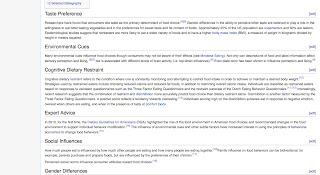 |
| Retrieved from http://luisgalarza.blogspot.co.uk/2009/06/19-bad-twitter-marketing-strategies-to.html on April 12, 2012. |
It is hard to summarize everything ALES has taught me because of the wide scope of lessons that translate into the many realms of our lives. For example, though we may have constructed our own Facebook pages as an electronic form of a resume, the activity made us more aware of what we put forth on the internet and how to hold ourselves in the most dignified, respectable manner. Presentation is everything, whether it be a professional Facebook page or constructing an email for job opportunities. The lectures offered practical applications we can use in the future for our professional lives. Lab participation and lecture lessons taught us to be responsible individuals, how to effectively use social media to further our career opportunities, and to take advantage of all outlets to advertise our skills and experience. In this day and age it is very important for everyone to be aware of ways to intelligently use social media to network and assist in a job search. What I will take from the class is the correct way to construct a CV and the proper way to compose a professional letter. Unless you physically go to the place to hand in your CV/resume, the paper resume is how a person makes the first impression to the employer. This is the sole reason why a person’s CV/resume should be organized, neat and only present pertinent information. There is no reason why you should write which junior high school you attended when you are applying for a professional job. One piece of advice from lab that I found valuable was to immediately write down any volunteer experience or awards received. We don’t realize how easy it is to forget important credibility we could use to enhance our professional portfolios.
 |
| Retrieved from http://www.tinyandmighty.com/proper-use-of-social-networking-sites on April 12, 2012. |
With so many people from different backgrounds in the same faculty, ALES 204 has allowed us, the student body, to connect with each other and hear one anothers' thoughts. Though many of the blog posts may be similar, we were exposed to different opinions on the same subject and let our creativity run wild with our optional blog posts. This is something unusual and refreshing that I have never experienced in a class before. To interact with one another was a pleasant change from the traditional competitive nature of university classes. Previously being a Faculty of Science student, I had never met anyone in the Clothing and Textile program. It was only until I was in this class that I met a student in this program, Laura Scott. What I admire about her blog is the layout; Laura’s blog is clean-cut, precise, and doesn’t contain any “noise.” Another aspect of the blog portion of the class was the more intimate interaction between students by being able to comment and spread our thoughts. Now that the class has come to an end, I’ve realized there is more I need to learn and how there is so much I know nothing of. The practicality of this class to real-life situations is something I admire and applaud as a student who pays a lot to attend this university. So, thank you to Dr. Laccetti and all of the wonderful TA’s!!
Throughout the term, we commented on each other's blogs. Here are some of my comments:





